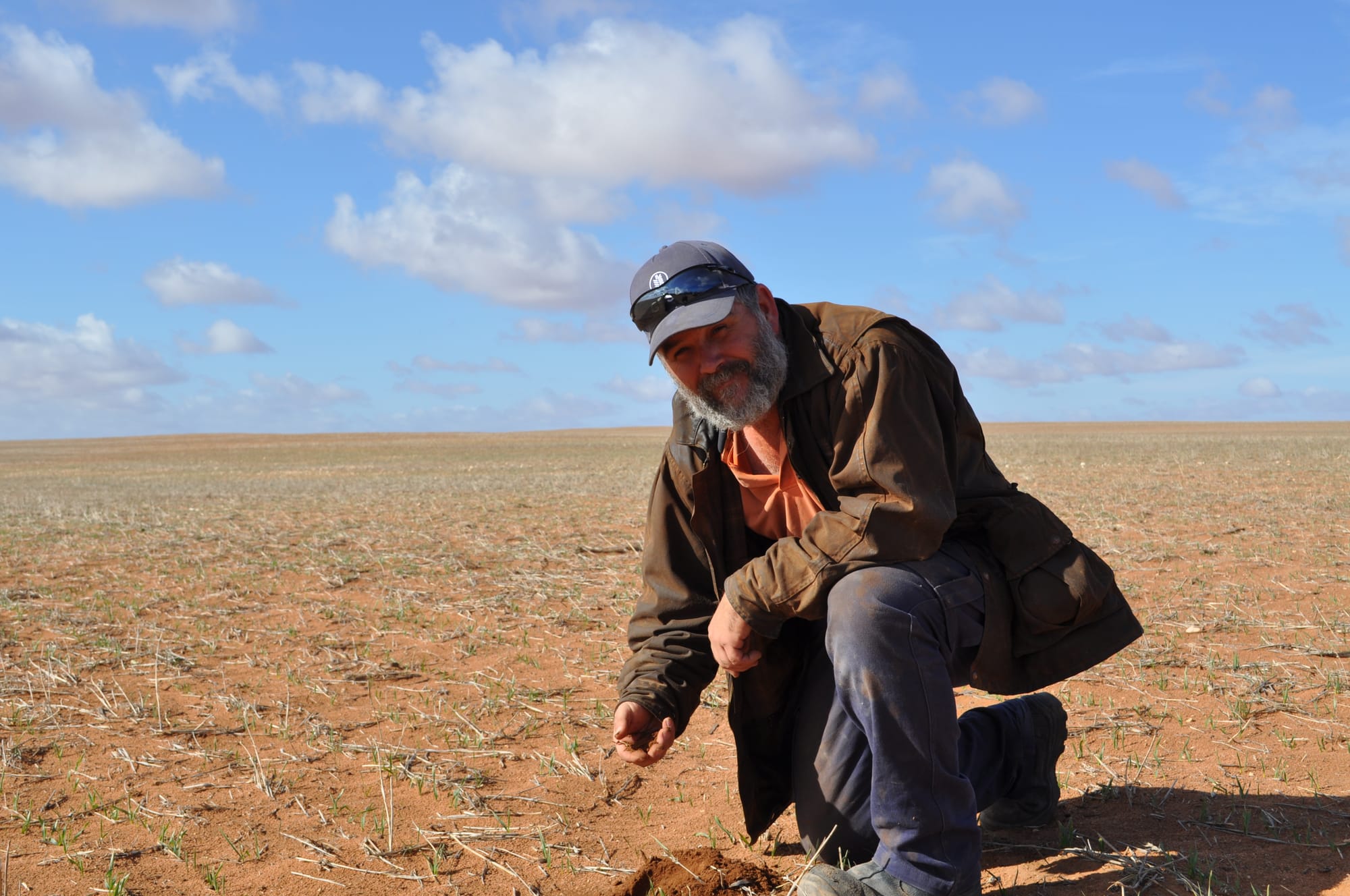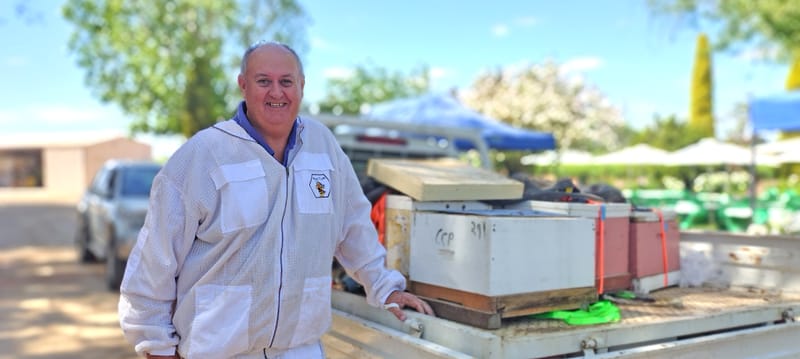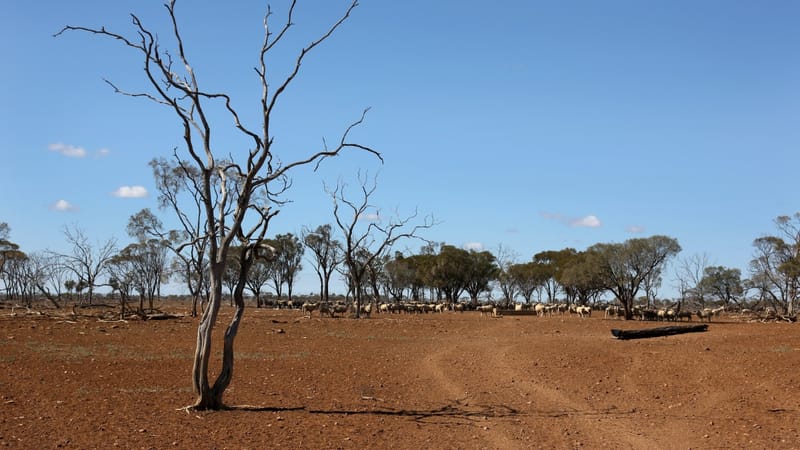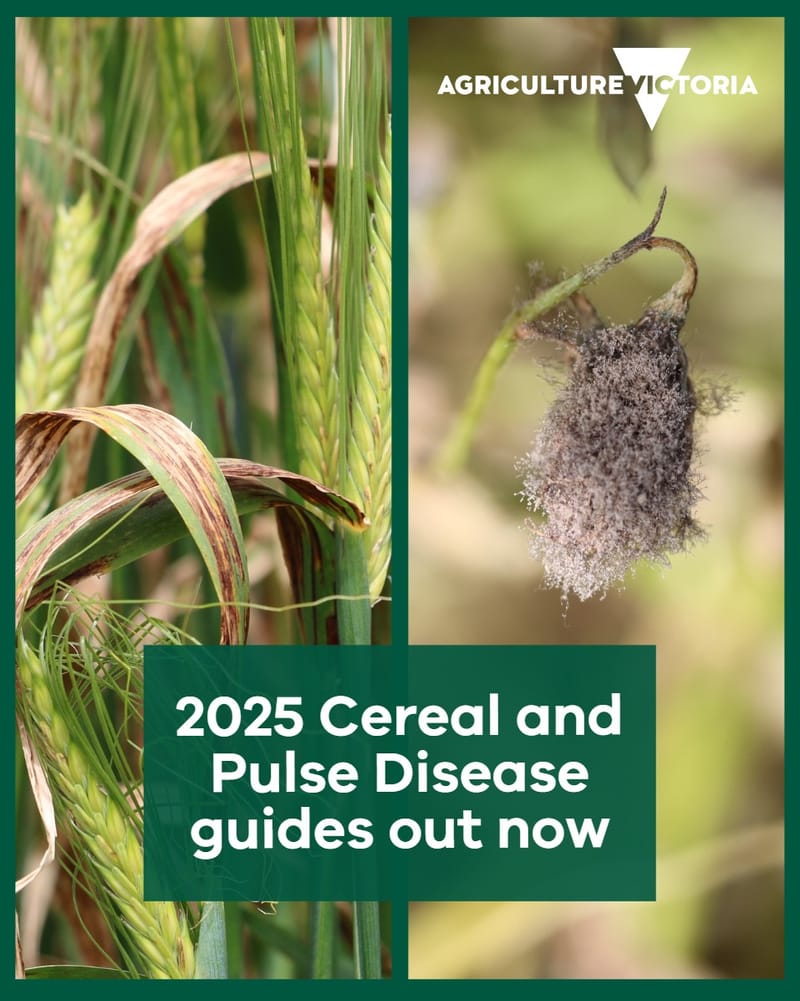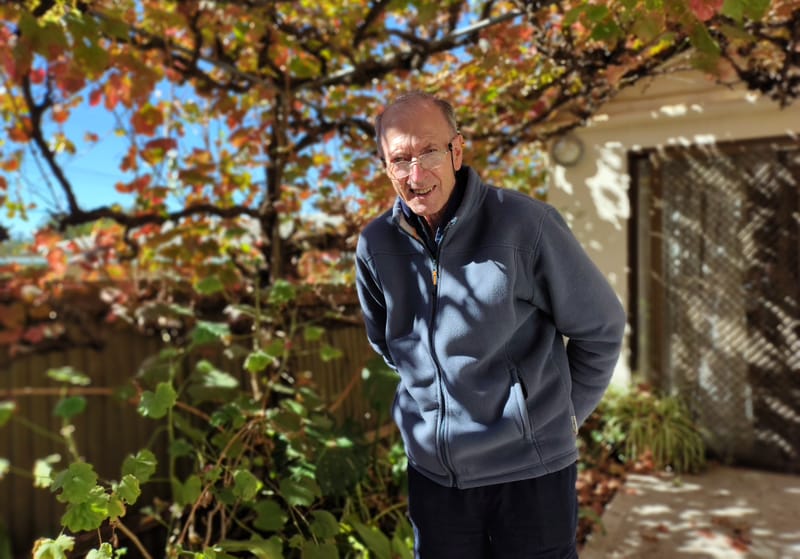State’s farmers still struggle with drought impacts
AS parts of South Australia deal with the driest conditions experienced in decades, a farmer from the Riverland has pleaded for the State Government to provide more support.
Tim Paschke (pictured), from Calpara Producers, is a sheep and crop farmer located 20km south of Waikerie and said while some of the state’s farming might have seen sufficient rainfall, it was a different story further out north.
“The government needs to look everywhere, I had the SA Premier (Peter Malinauskas) at my place in April and that was the last time I have heard from them,” he said.
“They have missed the mark with that. Driving through the Barossa some areas look good, and a lot of people don’t drive any further than that. They have really not understood how bad it is.
“It’s a frustration that the government hasn’t focused on… out further it is totally different and they need to focus on everywhere around the state.
“When the Adelaide hills ran out of water earlier this year that was the first time it was mentioned on the news, and we had already been in drought for two years.
“Now they have got water again it’s all gone off the radar, and we are the forgotten drought.”
Mr Paschke said the distribution of hay was another problem.
“Lots of people were screaming out for hay, we set ourselves up for three years of drought with what we had on hand,” he said.
“It was like the Riverland didn’t need hay as no one had applied for it, and we actually are prepared for these times, why do we have to be more resilient?
“Just because you are meant to get 400ml of rain just doesn’t mean you get it. Some people were putting this hay in sheds as it wasn’t needed.
“I think it was fundamentally wrong how the donated stuff has been distributed and people I know of didn’t even de-stock, the whole point of it was to support the breeders.”
Mr Paschke said he had no other option than to sell his sheep, and he had some tough decisions to make in the coming months.
“Sheep are worth a lot of money at the moment and it is probably a better time to get out than in other droughts, and hopefully we can get a good return,” he said.
“We sold over half of our sheep already, we had 1000 ewes, then went down to 750, and now there’s only 300 left.
“I am de-stocking now as we are really concerned that it may not rain next year, and unfortunately in this industry, we rely 100 per cent on what comes from the skies.
“We are going to have to make a decision in the next couple of weeks about what we will do with our remaining sheep. If it is say $100 a head to feed them to July next year, the rate of return might not be worth keeping them.
“There is no stubble from last year due to wind, and very little stubbles this year, so I can’t afford to put sheep on and graze effectively.”
Mr Paschke said the drought recovery could take years.
“It is not just something you can recover from in a year, what has happened in the last two years will take a minimum of five years to recovery from,” he said.
“The biggest problem is that you’re losing money due to interest and you can’t physically get the debt down as we don’t have any income, it would be nice if they bought back zero-interest loans again like they did a few years back.
“We keep going backwards and even if farmers were given some financial support to retain their workers like they do with apprentices it would help.”
Mr Paschke said the drought was putting strain on everyone through the community.
“There is so much pressure on farming families, the last thing I want to do is work off farm,” he said.
“They say there is mental health support out there but a lot of time you can’t access these services in rural communities and must drive a few hours to Adelaide.
“We are in a world of pain, the wind has done a lot of damage, every farmer has battled with losing soil and it is tough to see it in a state that we can’t control.
“If we don’t get decent rainfall next year then I reckon a quarter of the farmers will just give up.
“I am even hearing of shed builders having to go interstate to get work as there is nothing here, it’s taking a mental strain on our communities.
“I’d hate to be the one to lose it all, I love what I do. It really is on another level with financial pressures and we just want to do our job and get a return for it but that’s not happening.”
However, Lynton Barrett, a sheep and grain producer from Elljay Farms, in Lameroo, remains more optimistic, and said his crops were holding on, with community spirit remaining strong.
They farm approximately 4500ha with dryland cropping and irrigated crops for their main business.
Mr Barrett said their crops were looking healthy despite the lack of rainfall.
“It has been pretty good considering we’ve only had 200ml of rainfall for the season, it has only just been enough rain, so another 20ml would be ideal before the end of the season, but time is running out,” he said.
“Our crops are still looking healthy with above-average yields possible, but on the downside it looks like sheep feed is going to be short though the summer, and that’s something we will have to manage.
“While grain prices have unfortunately fallen considerably, there is some good news elsewhere with stock and wool prices very strong.
“Hay prices and demand are also encouraging.”
Mr Barrett was hopeful of harvesting a high-quality crop.
“We are fortunate to be in an area where rainfall has been reasonable and also sub-soil moisture from thunderstorms last summer has been a huge benefit,” he said.
“We are optimistic of getting quality crops. One more rain event would definitely help with improving the quality though.”
Despite the challenges, Mr Barrett said the morale of his business was good.
“As far as our business goes, we’ve remained very positive and we have been amazed with the crops that have been grown on minimal rainfall,” he said.
“We have got through it really well by having an open discussion on how everyone is coping with the challenging season.”
Mr Barrett said funding provided by the State Government had been helpful, although he could understand “why it isn’t beneficial for everyone”.
“The greatest challenge in dry times is not knowing when the season will break,” he said.
“This can be a testing time for anyone in the agriculture game, so mental health care is high on the agenda.
“I believe there are great support programs for businesses and individuals affected by stressful times, but the challenge is to get people to reach out and utilise them. We are fortunate in the Southern Mallee to have a very supportive community.”


